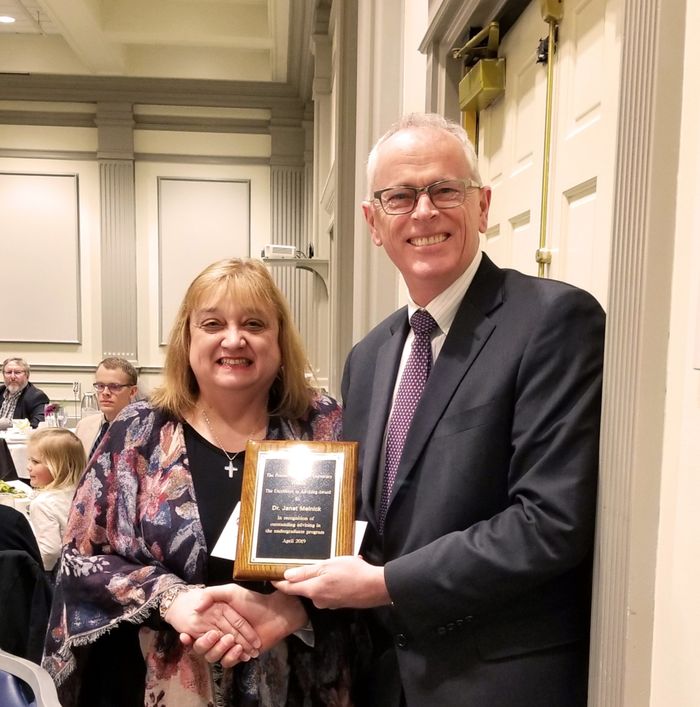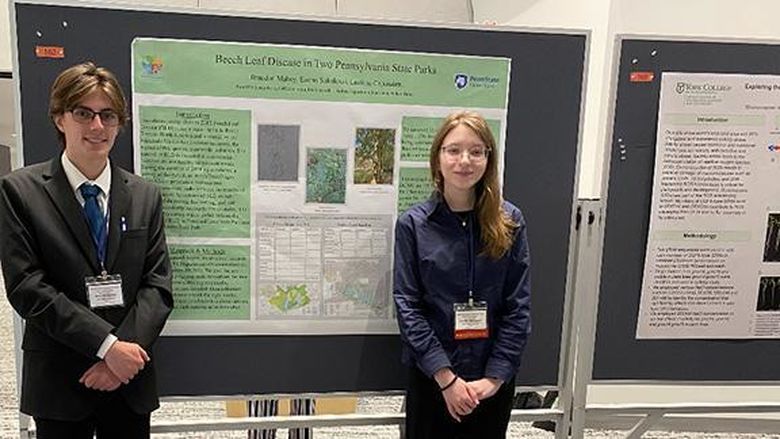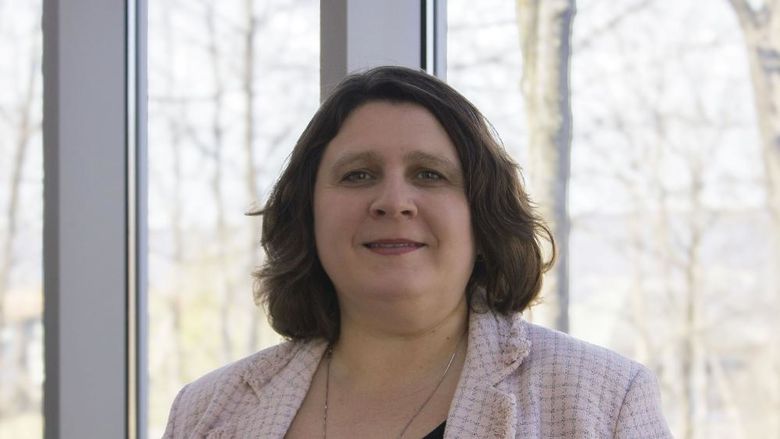DUNMORE, Pa. — For Janet Melnick, associate teaching professor and field coordinator of the Human Development and Family Studies (HDFS) program at Penn State Scranton, advising is more than just providing students with a roadmap to graduation. It’s also about forging close bonds with her advisees so they can maximize their academic careers.
That approach hasn’t gone unnoticed by the Penn State community. Last week, Melnick was one of just two people across the entire University system to receive the 2019 Penn State Excellence in Advising Award.
Established by the former Undergraduate Student Government’s Academic Assembly and sponsored by each college, the annual award honors one full-time professional adviser and one full-time faculty member from any Penn State location who have at least two years of advising experience. The criteria includes excellence in general advising, academic and career guidance, enthusiasm and assistance in decision making, and goal setting.
One of Melnick’s students nominated her for the award, pointing out that the professor truly values the time she spends with her 19 current advisees. (She’s had as many as 54.)
Melnick was sitting at her desk checking emails when she received the good news back in January.
“To say I was shocked was truly an understatement,” she said. “Never in a million years did I think I would get this award.”
Melnick said a good portion of her time with students is spent focusing on their respective career paths. That way, she can tailor their coursework to their specific needs.
“The students are also our consumers, so I feel an obligation to mentor them. They shouldn’t be left on their own to struggle,” she said. “College is expensive and they need to make the most of their time here and not take classes that may not count or help them as they pursue the degree.”
She believes her pre-academia career as a clinician and director of programs at a local nonprofit provided her with the tools to “see the big picture in terms of a student’s development.”
“I was formally responsible for supervising staff who worked directly with clients in social services, so I know how important it is to mentor young professionals,” she said.
“Also, students don’t know the field of social services, so they really don’t know how to prepare themselves for work with a certain client population, or in many cases what they actually want to do with the degree. I have that background knowledge and see it as my duty to help them along the path so that when they get the degree they are prepared to serve the clients they will be working with.”
Melnick tries to build a rapport with students from the very first advising meeting. She asks them about their background and their goals, and what they think they’d like to do with their degree. She wants them to know she genuinely cares about their success.
“I am a social worker, and I can’t turn that off,” she said.
Also, she makes it a point to know students’ work and family obligations so that she can develop an academic schedule that best fits their needs. And she’s flexible with her office hours.
“I have regular office hours, but when I am in the office, unless I am on a Zoom meeting or busy with other things, my door is always open,” she said. “I like to help students if they are struggling academically if I can. The better I know the student, the easier it is to help them, so I want and encourage them to stop by.”
Meanwhile, Melnick has been a New Student Orientation (NSO) adviser for the past 18 years. She was the principal investigator on an advising research project in 2011, and has been a longtime advising committee member for the Penn State University Faculty Senate.
The author of the “Mentoring Faculty as Advisers” portion of the Penn State Scranton advising plan, Melnick has dedicated significant time to training less experienced advisers.
“I am very proactive in assisting faculty as they develop into good academic advisers," Melnick said. “We are only as good as our weakest link, so everyone in our department must understand the process and the curriculum so we can advise students in a competent manner.”
Besides teaching, advising and conducting research, Melnick can also be found singing first soprano in the Penn State Scranton Chorale.
Away from campus, she enjoys reading, gardening and traveling. She loves her cats and is a committed animal advocate. An enthusiastic and versatile home cook, she’s been featured twice in The Scranton Times-Tribune’s “Local Flavor” recipe feature for her "East Meets West Salmon" and "Texas Wiener Sauce" recipes.
On July 1, Melnick will begin her 19th year at Penn State Scranton. Nearly two decades in, the job remains a passion and a joy, she said.
“I love the campus and Penn State and the students. The small-campus setting makes getting to know and interact with students easy and gratifying,” she said. “No job is without trials and ‘those days’ we all have, but I have been very happy since I started at Penn State Scranton. People care about each other and I think that makes it special.”






